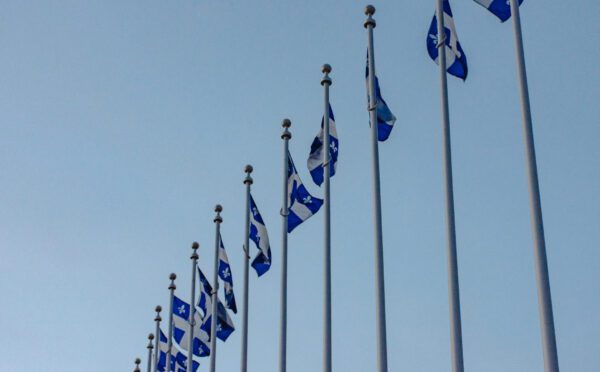Author
Partner, Disputes, Montréal
In January 2024, the Québec government proposed extensive amendments to the Regulation respecting the language of commerce and business (the Proposal). In our earlier Update, we reviewed this Proposal and the potential impact on businesses in Québec. On June 26, 2024, the Québec government published the final regulation amending the Regulation respecting the language of commerce and business (the Final Regulation), in which many of the measures contained in the Proposal were either withdrawn, reduced in scope or clarified.
For greater context on the evolution of Québec’s language laws in recent years, please see our earlier Update on Québec’s 2022 changes to the Charter of the French Language (the Charter), and our subsequent Update on the corresponding Regulation respecting the language of the civil administration.
Overview
The Final Regulation updates the wording of certain provisions in an effort to ensure harmonization with the Charter. The changes
- further narrow cases where an inscription on a product may be solely in a language other than French
- clarify the application of the Charter to common law or “recognized” trademarks
- set rules for public signs and posters of trademarks and business names
- facilitate the implementation of the Charter with regard to contracts of adhesion (non-negotiable contracts)
- further specify the scope of the requirement on the “marked predominance” of French, requiring that French text have “greater visual impact” than text in any other language, which is achieved with having French text take up twice the surface area than text in another language, while maintaining the same legibility and permanent visibility as non-French text
Inscriptions on products
By way of background, the Charter requires that text appearing on products sold in Québec be in French, and that no other language have greater prominence than French on those products, their packaging, and accompanying documentation.
However, provided that the product was manufactured outside of Québec, labelling that is engraved, baked, inlaid in, riveted, welded to, or embossed in a permanent manner on the product itself, is exempt. This is true other than for any text regarding safety, which must be translated into French. Under the Proposal, however, Québec sought to limit this exemption by requiring that, like safety indicators, any inscriptions of information “necessary for use” of the product also be
- translated into French, and included on the actual product (or in a way that permanently accompanies the product), and
- presented on the product itself as prominently as any non-French information
The Proposal also stipulated that any digital display on a product must be able to display text that is in French.
Thankfully, these changes did not survive the consultation process following the issuance of the Proposal, and labelling that is engraved, baked, inlaid in, riveted, welded to, or embossed in a permanent manner on the product itself, will continue to be exempt, except for any text regarding safety, which must be translated into French.
Translation and registration requirements for trademarks containing text in a language other than French on products
The Charter requires that, from June 1, 2025, trademarks that contain text in a language other than French must have a Canadian registration in order to appear on products in Québec. Interestingly, the Final Regulation backtracks on this new requirement and reinstates that status quo whereby any trademark recognized under the Trademarks Act, including trademarks that are not registered in Canada, can continue to be used on products in Québec in their original form.
However, the Charter also requires that, from June 1, 2025, generic or descriptive terms included in a trademark be translated into French when they appear on a product. Like the Proposal, the Final Regulation clarifies that this requirement will also extend to product packaging and documentation supplied with a product, and the Final Regulation clarifies what type of terms will be captured by this new requirement, namely
- a word or words describing the nature of the product, and
- a word or words describing the characteristics of a product
In contrast to the Proposal, however, the Final Regulation stipulates that the name of an enterprise and the name of the product as sold is not subject to the translation requirement, even if they contain terms that are otherwise descriptive of the nature or the characteristics of the product, which significantly reduces the scope of this new translation obligation.
When the translation obligation is triggered, the French translation of the generic or descriptive terms included in the trademark must appear at least as prominently as the original terms whenever the trademark appears on the product, its packaging, and any documents that come with the product.
Québec has thankfully provided some transitional measures to help businesses comply with these changes. Businesses can continue to sell products that were made before June 1, 2025 (December 31, 2025 if the product is subject to new Federal labelling standards provided by the Regulations Amending the Food and Drug Regulations (Nutrition Symbols, Other Labelling Provisions, Vitamin D and Hydrogenated Fats or Oils) or the Regulations Amending the Food and Drug Regulations and the Cannabis Regulations (Supplemented Foods)) and display trademarks that contain generic or descriptive terms that are not translated into French, until June 1, 2027.
The government has prepared a visual example of what is and is not compliant, which can be consulted here.
Translation and registration requirements for non-French trademarks on exterior signage
Under the Charter, Québec signaled that, as of June 1, 2025
- trademarks with any non-French text on exterior signage (which includes signage seen inside common areas of buildings, like office towers and shopping centers) would need to be registered in Canada to avoid a translation requirement (i.e. abolishing any exemption for common law trademarks), and
- French text accompanying non-French language trademarks on exterior signage would need to be “markedly predominant” to other languages on that signage.
Like for product inscriptions the Final Regulation backtracks on the abolition of the exemption for common law trademarks, reverting to the status quo whereby signage can display any trademark recognized by the Trademarks Act in its original form, regardless of whether it is registered in Canada.
The Final Regulation also succeeds in clarifying what is meant by “markedly predominant”. It stipulates that, in order to be compliant, “the space allotted to the French text is at least twice as large as the space allotted to the text in another language”, which is much clearer and affords greater flexibility than the standard set forth in the Proposal, which suggested that the size of the text must be twice as large as any term in the non-French language trademark, implying double font size, regardless of the surface area taken up by the French text.
Under the standard adopted by the Final Regulation, a storefront can retain its original sign with a trademark in another language and add permanent signage in French that is not necessarily bigger than the original sign, provided the cumulative surface area occupied by all the French signage elements is twice as large as the surface area occupied by the term in another language that is in the trademark.
The government has prepared visual examples of what is and is not compliant, which can be consulted here.
Translation requirements for non-negotiable contracting (contracts of adhesion)
Like the Proposal, the Final Regulation does, however, have some positive clarifications for business owners operating in Québec when it comes to contracting by telephone or online. The Charter requires that, as of June 1, 2023, businesses entering into non-negotiable contracts by phone or online with a Québec counterparty had to provide a French version of that contract, even in situations where the counterparty explicitly expressed a desire to contract in English. Implementing these requirements resulted in clunky while seemingly useless practices.
Online
Under the Charter, transactional websites in Québec have to build in functionality to allow a user to switch from English to French at each step of their contracting process, even for users who were given the opportunity at the outset of the contracting process to transact in English or in French, and chose to transact in English.
The Final Regulation confirms the Proposal and provides some relief in this regard as it specifies that businesses contracting online in Québec do not need to provide for the ability to switch from English to French at each step of customer-specific transactions where the option to transact in French was offered, but declined, at the outset of the contracting process. Instead, businesses only need to make available a French version of any standard terms that the contracting party is required to accept as part of the contracting process.
Telephone
Charter requirements had also resulted in a call centre practice of operators having to read out contract disclosures in French over the phone even when a caller had opted to be served in English.
Under the Final Regulation, where a consumer wishes to transact in English, the call centre operator can simply indicate to the consumer where to find the standard terms in French, instead of having to review them with the consumer over the phone.
Conclusion
If you think these proposed changes may impact your business operations in Québec, please let us know, as we would be happy to assist you with a risk assessment and implementation and compliance plan.
| Summary of key changes to the Regulation respecting the language of commerce and business | ||||
| Topic | Previous rule | Amended rule | Effective date | Impact or comment |
| Inscriptions on products | Exemption for non-French labelling engraved, baked, etc. on the product itself, except for safety information | Exemption maintained despite earlier proposal to restrict it | N/A | A welcome relief for manufacturers of physical products |
| Information displayed on digital interfaces of products | Translation arguably not required | Status quo maintained despite earlier proposal to require translation | N/A | A welcome relief for manufacturers of physical products that have digital interfaces |
| Trademarks with non-French text on products, packaging and accompanying documentation | Acceptable if recognized at common law | Acceptable if registered in Canada or if recognized at common law; generic or descriptive non-French words must be translated and as visible as non-French words, except for business and product names | June 1, 2025 | Translate generic or descriptive words in trademarks that are not the business or the product name and modify product and packaging design |
| Trademarks on exterior signage with non-French text | Acceptable if recognized at common law; French text must be present in the same visual field without having to be bigger than trademark | Acceptable if registered in Canada or if recognized at common law; French text must occupy twice the surface area occupied by non-French text | June 1, 2025 | Potential need to modify signage design to add additional French text to meet new surface area requirement |
| Transactions by telephone or online | Must provide French version of contract even if counterparty chooses English; must allow switching from English to French at each step of online contracting process | Only standard terms must be made available in French; can simply indicate where to consult French standard terms for phone transactions; no need to enable switch from English to French at each step of online transaction | July 11, 2024 | Some clarity and relief for businesses contracting through websites or call centres |

